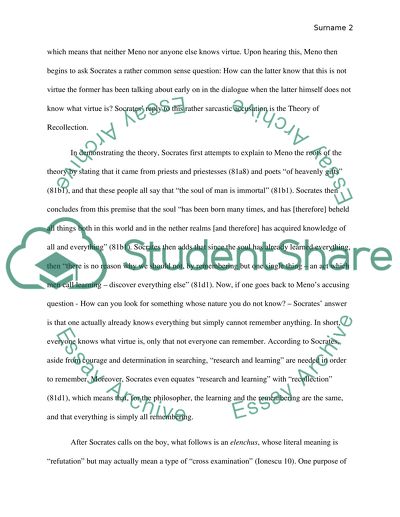Cite this document
(“Plato's Meno Research Paper Example | Topics and Well Written Essays - 1500 words”, n.d.)
Retrieved from https://studentshare.org/philosophy/1428327-meno
Retrieved from https://studentshare.org/philosophy/1428327-meno
(Plato'S Meno Research Paper Example | Topics and Well Written Essays - 1500 Words)
https://studentshare.org/philosophy/1428327-meno.
https://studentshare.org/philosophy/1428327-meno.
“Plato'S Meno Research Paper Example | Topics and Well Written Essays - 1500 Words”, n.d. https://studentshare.org/philosophy/1428327-meno.


